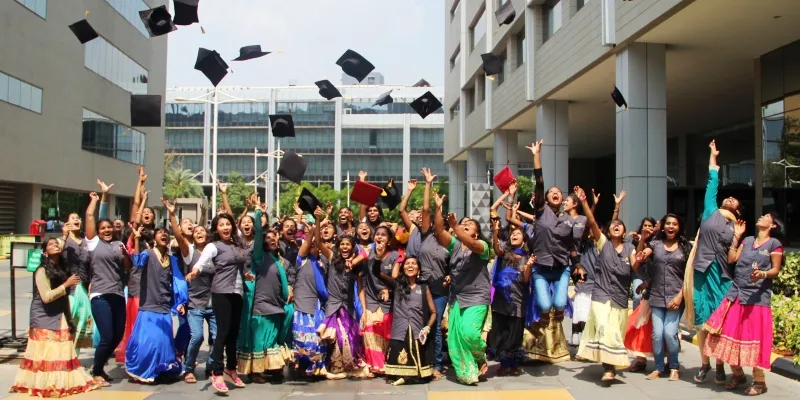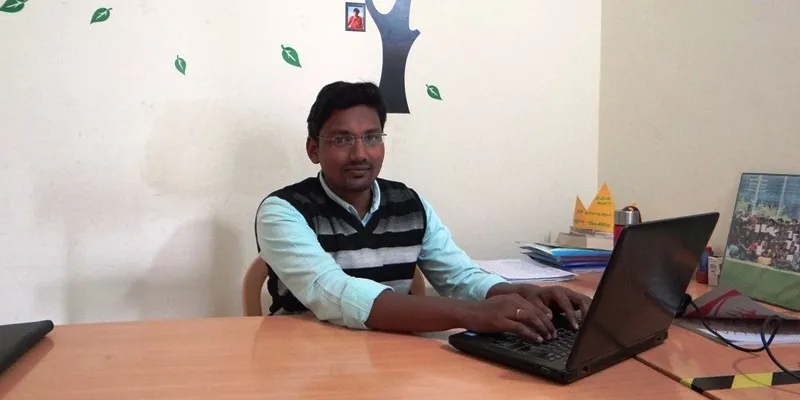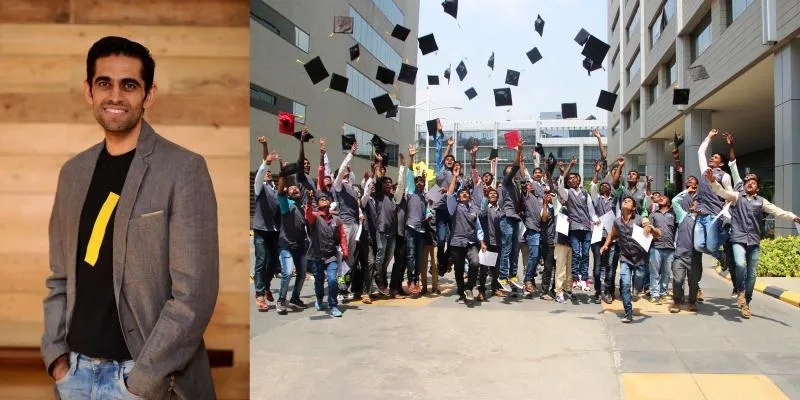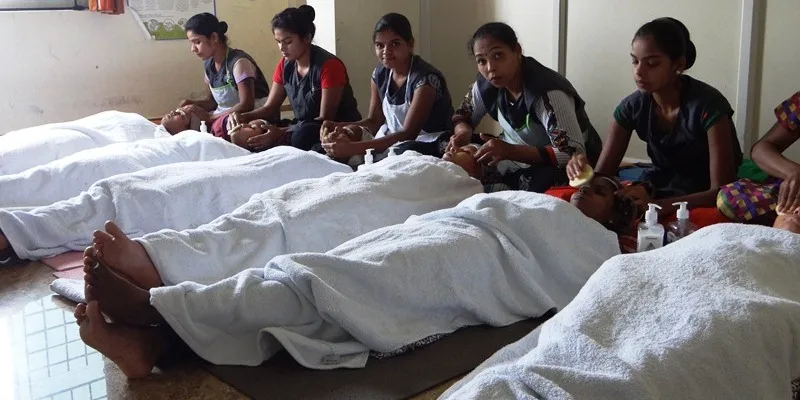Through residential programmes for underprivileged youth, Gurukul is on a mission to end poverty
Aiming to alleviate poverty, Gurukul is training youth under the poverty line to survive and rise above adversities.

Started in November 2015, Gurukul is a residential programme at The/Nudge Foundation, a non-profit that works towards poverty alleviation. Through Gurukul, underprivileged youth are being educated on every front, with a job at the end of their 90-day training programme and a lifelong support system for every hurdle life throws their way.
Gurukul was started to give hope to the large population of India thrown into an endless cycle of poverty. It aims to support the underserved through education.

Atul Satija
Previously, the Chief Revenue Officer of InMobi, Atul Satija decided to start The/Nudge Foundation to contribute towards eliminating inequality and other social issues from India.
Prior to InMobi, he has worked in key positions at Google, Adobe, Samsung, and Infosys. He was also the Chairman of the board of a non-profit, EndPoverty.
“I have had a successful career till date, but as I worked with the social sector, I realised that no two individuals were equal in any manner. While some were given the opportunity to learn, many were born into poverty. I wanted to balance this scale. I was pretty confident that I wanted to spend the second half of my work life serving people,” says Atul.

Gurukul
“Although we knew what our end goal was, we didn’t know how to start. On speaking to people, we realised that by educating the youth, we’d be solving the future poverty crisis, i.e. we wouldn’t have to worry about their children joining the poverty line. Therefore, we worked with youth for organising pilot projects and learned from their feedback. They helped us get Gurukul to the place it is now,” says Atul.
Gurukul is a 90-day residential education programme for youth coming from extreme poverty. This constructive programme is aimed at changing their way of life and equipping them with the tools to rise above hardship.
“Gurukul had a new approach to a problem other CSRs were aiming to solve. What made The/Nudge Gurukul stand out is its 360° residential programme with 50 percent focus on life-skills. This factor encouraged us to invest in The/Nudge, and we haven’t looked back since,” says Meenu Bhambhani, the Head of CSR at Mphasis, the first company to fund this cause. In the past two years, Gurukul has garnered support from KPMG, Wells Fargo, Candor, and BookASmile — a charity initiative of BookMyShow.

The students are selected from across Karnataka based on a few criteria — their economical background, their motivation to change, and their ability to learn. Once selected, based on their educational qualification, the students are trained for a particular profession — BPO/sales, electrician, beautician, plumber and driver. Gurukul has tied-up with workforce-requiring industries to ensure easy placements of the graduates. Their livelihood training is, therefore, sculpted as per the specifications of the industry.
“Every student here has to be treated with a lot of patience and care. If someone isn’t aware of the circumstances of these students, it becomes very hard to teach and give them proper guidance. Teaching a concept is easy, teaching a lifestyle is difficult, but teaching a lifestyle to people with extremely severe backgrounds is the hardest of all,” says the Principal of Women’s Gurukul.

The residential setup also trains the students to constantly learn and improve their skills. It inspires them to plan for the future instead of worrying only about the present.
The students are trained in batches of 40. At a time, there are around 350– 400 students being trained, with a few days gap between each batch. The students are between 18-23 years of age. They are placed into a course depending on their education — if they have completed 12th grade, then they are eligible for the BPO/sales course; else, they are placed into the other courses.
The students undergo rigorous training with a strict schedule; their day starts at 6 am with yoga. They have classes from 8 am to 7 pm — a 10-hour schedule that includes imparting them with professional training and soft-skills. The day finally ends at 10 pm.

“I lived at a small place where I was too afraid to have any ambitions. It’s only after I came here that I realised how big the world is and how much I can achieve. My fear is gone. I am confident that I can stand on my own feet, come what may,” says a student at Gurukul.
For a batch, the end of the programme is always celebrated with a graduation ceremony organised by Gurukul but hosted by the students themselves. Till date, 1,428 students have graduated from The/Nudge Gurukul which proudly maintains a 100 percent placement rate.
Gurukul also provides a lifetime support system — a system that ensures an individual doesn't fall back into poverty due to unforeseen circumstances. It accomplishes this by providing the individual with counselling support, healthcare support and, most importantly, financial support through extra-income generating opportunities.
The future
In December last year, Team Gurukul announced that, in 2018, it will be scaling to include more than 5,000 students and opening centres in Delhi and Mumbai. With a grant of $250,000 from The Rockefeller Foundation, Gurukul hopes to take the necessary steps to end poverty. The funds will be used for capacity building across admissions, programme delivery, product research and tech-driven data management systems.
“When I joined Atul at the start of our Gurukul journey, we were considering various paths to work towards poverty alleviation. The initial days were filled with lots of slogging and lots of learning from various experiments that we conducted. Now, the idea is alive and flourishing and we hope to have much more impact in the coming years”, says Saurabh Adeeb, Head of Corporate and Partner Engagement, The/Nudge Foundation.







